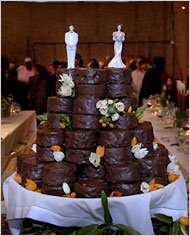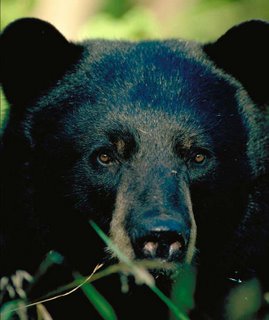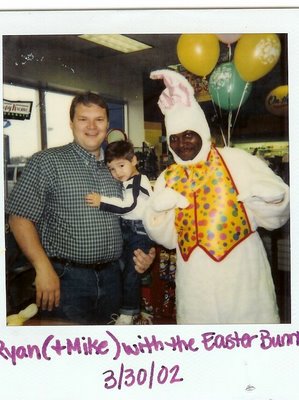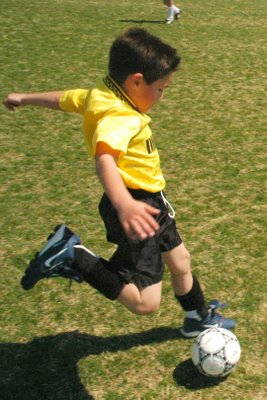I stumbled across Moneyball, by Michael Lewis, while driving around town and listening to talk radio. One of the hosts, whom I've listened to for several years, mentioned that this book changed the way he thought about baseball (before you stop reading, baseball is just the setting here). I thought it was a little interesting, just because I knew this was probably the first book this guy had read in years (he later admitted this), so I thought it would be interesting to check out.
I couldn't put it down.
Here's the premise: A man named Bill James, who was a night watchman at a factory and an avid baseball fan, decided that the statistics that are most often associated with baseball players are a very flawed means of judging performance. He writes and self-publishes (60 copies or so) an amateur analysis back in '77 or so. He does legwork and determines that there are some obscure statistics that are much better predictors of success in the major leagues, and a small, underground craze begins--This question generates discussion among top minds in statistics and economics across the nation--adding academic theory to the raw concepts.
The funny thing is that no major league team picked up on the relevance of this statistcal analysis...until 20 years later, when Billy Beane, General Manager for the Oakland A's, hires a Harvard economist (it's really funny in the book, because there is not one scene where this guy isn't typing into his computer, which they personify: "His computer told them to take such-and-such a player". Using this data, Billy Beane finds players who are undervalued in the market and scoops them up at bargain prices, where they proceed to completely kick the ass of the Texas Rangers (my team), winning the division and going to the playoffs with a substantially lower total player salary.
The moral of this story could be: Nerds rule.
This story struck home with me, because it was completely analagous to the situation in which Gar and I found ourselves at the trucking company ten years ago...before the Moneyball concept was implemented in the major leagues.
We went to a small, family-owned trucking business, and, by applying concepts in productivity and logical business processes, without an MBA among us, I must add, we increased the production of a ragtag company which had never made a profit.
We also encountered some of the same obstacles--old-timers in a good ol' boy industry who were resistant to change--our ideas were flatly rejected quite often, which left us shaking our heads. We would have to prove our ideas with very little error, our assumptions would be questioned, and, in the end, if some old man with forty years of experience decided he wasn't going to do it, it wouldn't get done.
It was an exciting time for us--it felt like riding the crest of a wave on a surfboard, feeling the momentum of the company moving forward as we made huge changes. Gar had been my roommate in college and was my most trusted friend, but at the company he sort of went underground. He dressed in workclothes sometimes and went down on the loading docks to help the guys drive forklifts and load trucks, taking on that responsibility for months in order to get a real picture of what was happening behind the scenes. Sometimes, he would have to leave his dock responsiblities to build a new server, network our office, or help me crunch numbers for a new contract.
I wonder if the authors and implementers of the Moneyball concept realize how stubborn and entrenched businesses can get. The feeling that I get from the book is that the managers in baseball often feel confined to almost superstitious beliefs in trusting meaningless statistics and disproven rules of thumb because they fear ridicule and public scrutiny. The tone that is conveyed is that baseball is composed of "insiders" and "outsiders", and that never the twain shall agree--having a computer pretty much automatically makes you an outsider.
But this is the way that Gar and I felt when we pointed to a printout as evidence that a change needed to be made, only to be met with solemn head-shaking. Reading Moneyball gave me an analogy to point to--we knew we were right but because we didn't have a Harvard pedigree there was more of a burden on us to prove ourselves. Even after 4 years of increasing profits and proving our track record, our voice was given weight, but not enough to overrule the insistence of insiders and their voodoo supersititions of business, which they chanted like a mantra at times while Gar and I incredulously tried to explain.
About a year ago, I wrote a story called The Potato Factor, about the owner of our company who saw our statistical projections and tried to get in on the act by implementing his own, nonsensical, timewasting, and inefficient record-keeping procedure--it was laughable--we felt like we were in our own world, and that nobody would believe it if we told them the story.
Maybe that's why Moneyball made me feel so excited--I connected with the struggle to apply statistical analysis in a subjective world. Suddenly, I felt like there were people in the world who felt my pain, and who also used the same techniques as I did to generate success. In fact, I was applying these concepts before Billy Beane used them to generate a winning team--It fed my ego and made me feel a lot smarter. But why should it? Nothing changed about our success or methods except for the fact that they were given Ivy League credentials and more sophisticated language and several zeros were added to the number of dollars.
There are some lessons to be learned there.








